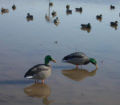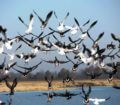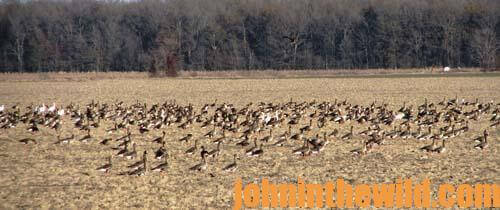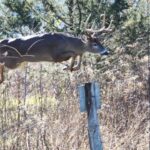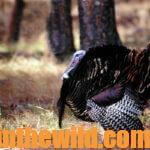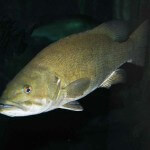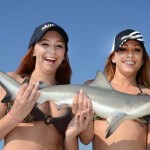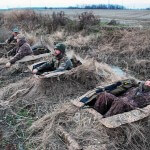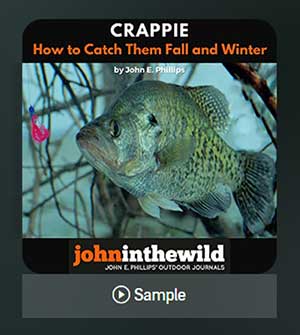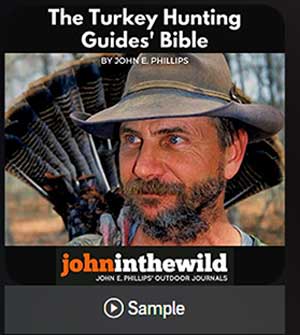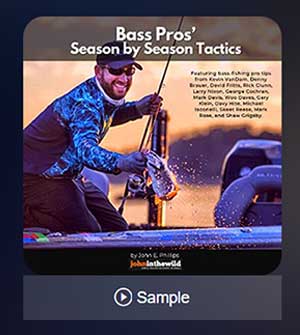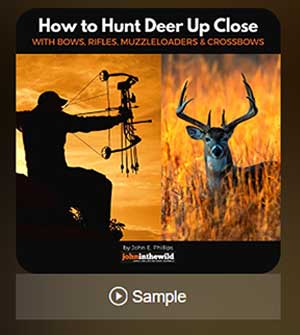Editor’s Note: One of the toughest places in America to hunt waterfowl is Louisiana, due to the temperatures. The first time I hunted there, my guide brought out two cans of industrial strength Yard Guard to keep the mosquitoes out of our blind. Bill Daniels of Hayes, Louisiana, has been hunting the Bayou State for 35+ years. This week he’ll tell us how to hunt ducks at the end of the flyway.
 The reason I believe my Riceland speck goose calls are some of the best on the market is because most specklebelly calls are hard to blow. But ours are easy to blow. I also think they have the most-realistic sound of any specklebelly call on the market.
The reason I believe my Riceland speck goose calls are some of the best on the market is because most specklebelly calls are hard to blow. But ours are easy to blow. I also think they have the most-realistic sound of any specklebelly call on the market.
Specklebelly geese come to calls much like mallard ducks do. They like to circle the blind several times before they decide to come in and cup their wings in front of the blind. I call to specklebellies by trying to get one goose to pull away from the flock. Then, I do some clucks and yodels, and I listen to hear how that goose is answering back to me. Once he answers my call, I call to him with the same calls and rhythm that he calls back to me. Usually, one goose in a flock will do most of the calling, and I focus my calling on this goose. I’ll let the specklebelly tell me how to call to him. Then, I study how he changes his wing beats and his flight pattern. If the wings are flapping fast, and the geese are heading away from us, then I’ll call to them more aggressively to try to get their attention. If I can get one of those geese to turn and start coming back to me, I’ll change up my calling pattern from loud and aggressive to soft clucking. Often, that one goose will pull the flock down to us.
 In Louisiana, we usually don’t get the big flocks of specklebellies like they do in Arkansas. In southwest Louisiana where I hunt, the flocks usually will be made up of 10 or fewer specklebellies. We generally do better calling-in pairs or singles than we do calling-in larger flocks. The more geese you have in a flock, the more eyes you have looking at your decoys and your blinds. Also, you have many more geese listening for mistakes you may make in your calling, and those flocks seem to spook easier than singles or pairs.
In Louisiana, we usually don’t get the big flocks of specklebellies like they do in Arkansas. In southwest Louisiana where I hunt, the flocks usually will be made up of 10 or fewer specklebellies. We generally do better calling-in pairs or singles than we do calling-in larger flocks. The more geese you have in a flock, the more eyes you have looking at your decoys and your blinds. Also, you have many more geese listening for mistakes you may make in your calling, and those flocks seem to spook easier than singles or pairs.
We generally take several specklebellies that have been wearing leg bands. We’ve learned that most of our specklebellies have been banded in Alaska, so those geese have made long trips to get to warmer weather. Hunters in southwest Texas and the Panhandle of Texas also take a lot of specklebellies. Although we have numbers of ducks here in Louisiana, and we get far more ducks than geese, specklebellies are my favorite waterfowl. I like the specklebellies because they work well and respond well to calling. Before they come in to our decoys, they circle over the blind quite a bit and get my hunters and me really excited. When we first started our hunting club, our members weren’t very excited about taking specklebellies. They would take them when they flew over the blind, but now, many of our members had rather go specklebelly hunting than duck hunting.
 On a morning hunt, we’ll usually get two waves of specklebellies. The first group often will come in with the ducks at first light, but they really start flying after the sun comes up around 7:00 or 7:15 am. The specklebellies usually work the best on bright days with sunshine and a little bit of wind. On a good day, we’ll see 30 or 40 flocks of specklebellies, but I feel fortunate if my blind gets six or eight opportunities to take specklebellies in a morning. If we have five people in the blind, and they take 10 speckled bellies, I feel like we’ve had a good morning.
On a morning hunt, we’ll usually get two waves of specklebellies. The first group often will come in with the ducks at first light, but they really start flying after the sun comes up around 7:00 or 7:15 am. The specklebellies usually work the best on bright days with sunshine and a little bit of wind. On a good day, we’ll see 30 or 40 flocks of specklebellies, but I feel fortunate if my blind gets six or eight opportunities to take specklebellies in a morning. If we have five people in the blind, and they take 10 speckled bellies, I feel like we’ve had a good morning.
To learn more about all types of hunting, you can see John E. Phillips’ books, available in Kindle, print and Audible at https://johninthewild.com/books.

